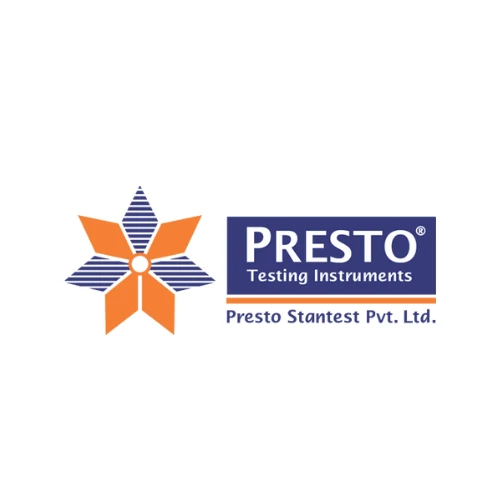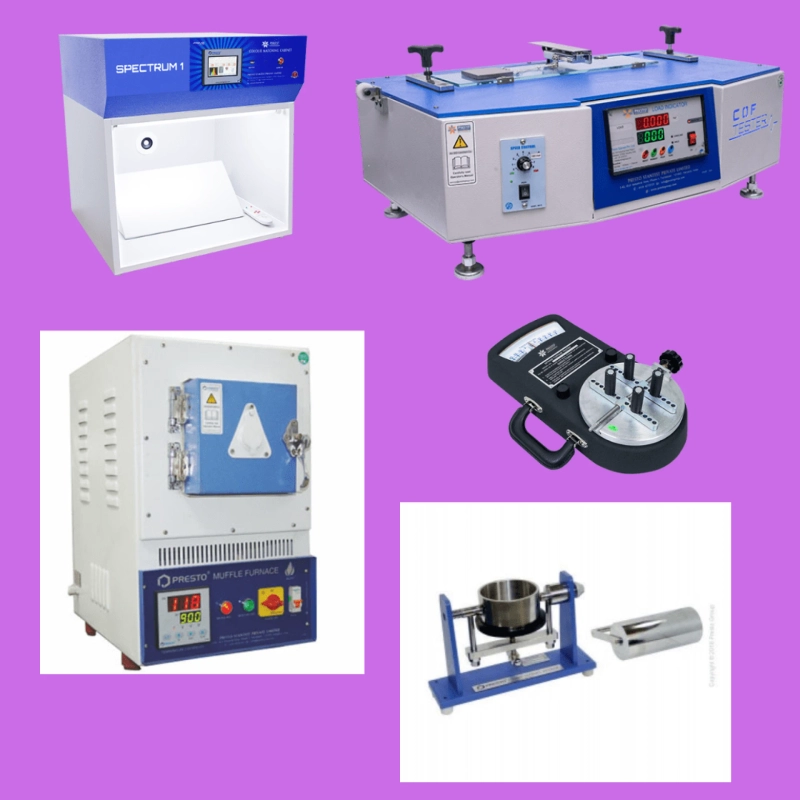 In the dynamic landscape of manufacturing and production, ensuring product quality and consistency is paramount. From textiles and plastics to metals and ceramics, each material undergoes rigorous testing to meet industry standards and customer expectations. In this blog, we delve into five essential testing instruments—color matching cabinet, torque tester, muffle furnace, coefficient of friction tester, and Cobb tester—exploring their functionalities, applications, and importance in various industrial sectors.
In the dynamic landscape of manufacturing and production, ensuring product quality and consistency is paramount. From textiles and plastics to metals and ceramics, each material undergoes rigorous testing to meet industry standards and customer expectations. In this blog, we delve into five essential testing instruments—color matching cabinet, torque tester, muffle furnace, coefficient of friction tester, and Cobb tester—exploring their functionalities, applications, and importance in various industrial sectors.
1. Color Matching Cabinet:
Functionality: A color matching cabinet, also known as a light booth or color assessment cabinet, is an essential tool for evaluating and maintaining color consistency in materials and products. It provides standardized lighting conditions to assess color differences accurately and ensure color accuracy across production batches.
Applications: Color matching cabinets are widely used in industries such as textiles, automotive, printing, paint, cosmetics, and food packaging. They facilitate color matching and quality control processes, enabling manufacturers to achieve precise color reproduction and consistency in their products.
Importance: Consistent color appearance is critical for brand identity, product aesthetics, and customer satisfaction. By using a color matching cabinet, manufacturers can identify color discrepancies early in the production process, minimize rejections, and maintain brand integrity, ultimately enhancing product quality and market competitiveness.
2. Torque Tester:
Functionality: A torque tester measures the rotational force or torque required to tighten or loosen fasteners, closures, and components. It ensures proper assembly and prevents under or over-tightening, which can lead to product failure or malfunction.
Applications: Torque testers are essential in industries such as automotive, aerospace, electronics, medical devices, and consumer goods manufacturing. They are used to validate torque specifications, verify product integrity, and ensure compliance with safety standards and regulations.
Importance: Accurate torque measurement is crucial for product performance, reliability, and safety. By using a torque tester, manufacturers can establish consistent assembly procedures, detect defects or inconsistencies in fastening processes, and prevent costly recalls or warranty claims due to faulty products.
3. Muffle Furnace:
Functionality: A muffle furnace is a high-temperature oven designed for controlled heating and heat treatment of materials. It operates by enclosing the sample in a refractory chamber to protect it from contaminants and oxidation, providing uniform heating and precise temperature control.
Applications: Muffle furnaces find extensive use in metallurgy, ceramics, materials science, research laboratories, and quality control testing. They are employed for processes such as annealing, sintering, ashing, calcination, and heat treatment of metals, ceramics, polymers, and composites.
Importance: Muffle furnaces play a crucial role in material processing and characterization, enabling the transformation of raw materials into finished products with desired properties. They ensure reproducibility, consistency, and reliability in heat treatment processes, contributing to the quality and performance of manufactured goods.
4. Coefficient of Friction Tester:
Functionality: A coefficient of friction tester measures the frictional resistance between two surfaces in contact during sliding or relative motion. It quantifies the ease of movement or slipperiness of materials and interfaces under specified conditions.
Applications: Coefficient of friction testers are utilized in industries such as packaging, textiles, automotive, cosmetics, and medical devices. They assess the frictional properties of materials, coatings, lubricants, and surface treatments, influencing product design, performance, and usability.
Importance: Understanding frictional behavior is crucial for optimizing product functionality, performance, and user experience. A coefficient of friction tester helps manufacturers evaluate the suitability of materials and surface treatments, minimize wear and abrasion, improve product ergonomics, and enhance overall product quality.
5. Cobb Tester:
Functionality: A Cobb tester measures the water absorption or resistance of paper, paperboard, and corrugated board materials. It determines the amount of water absorbed by a sample under standardized conditions, providing valuable insights into material porosity and moisture management properties.
Applications: Cobb testers are indispensable in the paper and packaging industry for assessing material quality, printability, and durability. They are used to evaluate the suitability of paper-based materials for various applications, including printing, packaging, and converting processes.
Importance: Water resistance is a critical attribute for paper and packaging materials, especially in applications where exposure to moisture can compromise product integrity or performance. By using a Cobb tester, manufacturers can optimize material formulations, ensure compliance with industry standards, and deliver high-quality, moisture-resistant products to meet customer requirements.
Conclusion:
In conclusion, testing instruments play a vital role in quality assurance and product development across diverse industrial sectors. From ensuring color consistency and torque specifications to controlling heat treatment processes and assessing frictional properties, these instruments enable manufacturers to meet stringent quality standards, enhance product performance, and drive innovation. By investing in reliable testing equipment and implementing robust quality control measures, manufacturers can uphold their commitment to excellence and deliver superior products that meet customer expectations and industry regulations.


